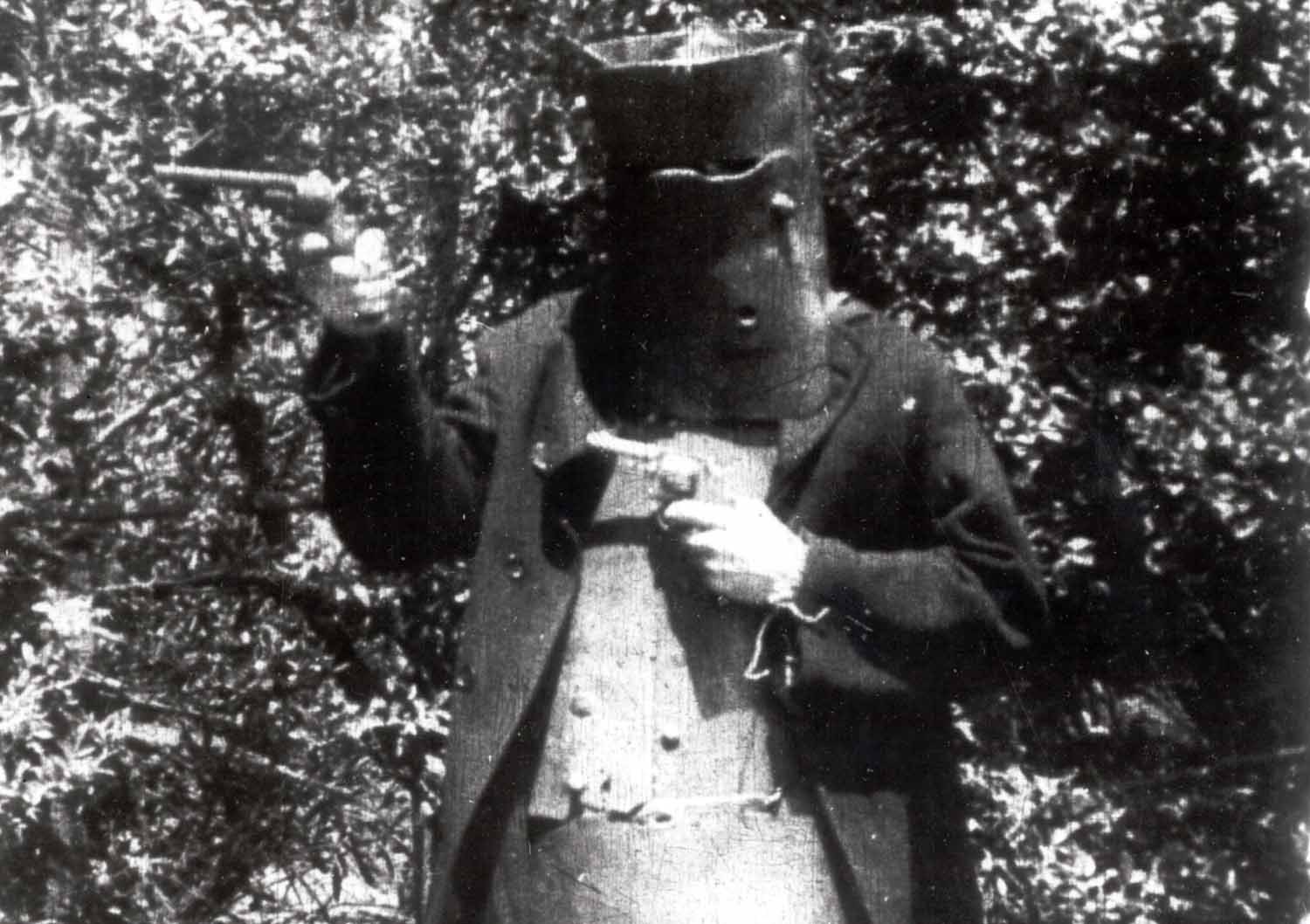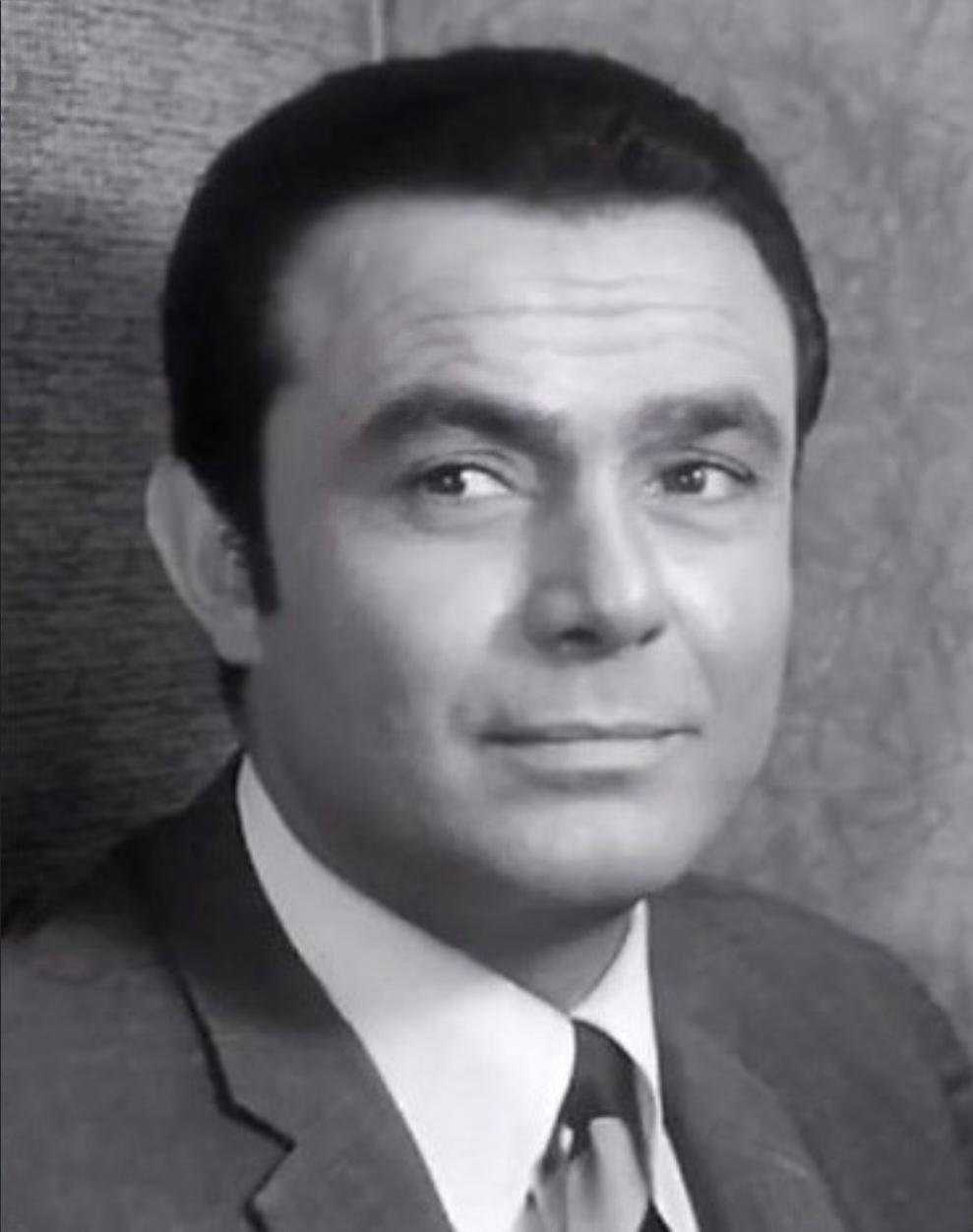|
Ralph Reader
William Henry Ralph Reader (25 May 1903 – 18 May 1982), known as Ralph Reader, was a British actor, theatrical producer and songwriter, known for staging the original Gang Show, a variety entertainment presented by members of the Scouting movement, and for leading community singing at FA Cup Finals. Childhood Reader was born in Crewkerne, Somerset, England, the son of a Salvation Army bandmaster. He was orphaned by the age of eight and brought up by aunts and uncles. Joining the Scout movement at 11, he put on Scout shows as a patrol leader in the 2nd Denton and South Heighton Troop in Newhaven, Sussex. His first job was as delivery boy for a relative's greengrocer's shop in Seaford. His employer took Reader to Brighton to buy supplies and then visit the Hippodrome theatre, where he saw many music hall stars of the day. At age 14 he became a telegram messenger and, at 15, an office boy at a cement works. From Magheramorne, County Antrim, Ireland, he moved after wh ... [...More Info...] [...Related Items...] OR: [Wikipedia] [Google] [Baidu] |
Crewkerne, Somerset
Crewkerne ( ) is a town and electoral ward in Somerset, England, southwest of Yeovil and east of Chard all in the South Somerset district. The civil parish of West Crewkerne includes the hamlets of Coombe, Woolminstone and Henley – and borders the county of Dorset to the south. The town is on the main headwater of the River Parrett, A30 road and West of England Main Line railway, in modern times the slower route between the capital and the southwest peninsula, having been eclipsed by the Taunton route. The earliest written record of Crewkerne is in the 899 will of Alfred the Great who left it to his youngest son Æthelweard. After the Norman conquest it was held by William the Conqueror and in the Domesday Survey of 1086 was described as a royal manor. Crewkerne Castle was possibly a Norman motte castle. The town grew up in the late mediaeval period around the textile industry, its wealth demonstrated in the fifteenth century Church of St Bartholomew. During the 18th and ... [...More Info...] [...Related Items...] OR: [Wikipedia] [Google] [Baidu] |
Cement
A cement is a binder, a chemical substance used for construction that sets, hardens, and adheres to other materials to bind them together. Cement is seldom used on its own, but rather to bind sand and gravel ( aggregate) together. Cement mixed with fine aggregate produces mortar for masonry, or with sand and gravel, produces concrete. Concrete is the most widely used material in existence and is behind only water as the planet's most-consumed resource. Cements used in construction are usually inorganic, often lime or calcium silicate based, which can be characterized as hydraulic or the less common non-hydraulic, depending on the ability of the cement to set in the presence of water (see hydraulic and non-hydraulic lime plaster). Hydraulic cements (e.g., Portland cement) set and become adhesive through a chemical reaction between the dry ingredients and water. The chemical reaction results in mineral hydrates that are not very water-soluble and so are quite durable in wa ... [...More Info...] [...Related Items...] OR: [Wikipedia] [Google] [Baidu] |
Premiere
A première, also spelled premiere, is the debut (first public presentation) of a play, film, dance, or musical composition. A work will often have many premières: a world première (the first time it is shown anywhere in the world), its first presentation in each country, and an online première (the first time it is published on the Internet). When a work originates in a country that speaks a different language from that in which it is receiving its national or international première, it is possible to have two premières for the same work in the same country—for example, the play ''The Maids'' by the French dramatist Jean Genet received its British première (which also happened to be its world première) in 1952, in a production given in the French language. Four years later, it was staged again, this time in English, which was its English-language première in Britain. History Raymond F. Betts attributes the introduction of the film premiere to showman Sid Grauman, who ... [...More Info...] [...Related Items...] OR: [Wikipedia] [Google] [Baidu] |
The Gang Show (1937 Film)
''The Gang Show'' is a 1937 British musical film about a Boy Scout Troop who stage a variety show to raise funds, when the lease of their meeting place expires. The film was a vehicle for material from Ralph Reader's Gang Shows that had been successful on the stage in London's West End since 1932; the songs included the Gang Show anthem; ''"Crest of a Wave"''. Shot at Pinewood Studios, the film premiered at the Lyceum Theatre, London on 13 April 1937, the only occasion that the theatre was used as a cinema. It was released in New York in December 1938 under the shortened title ''The Gang''. Cast * Ralph Reader as Skipper * Gina Malo Gina Malo (born Janet Flynn; June 1, 1909 – November 30, 1963) was an American film actress, born Janet Flynn in Cincinnati, Ohio. She appeared in a number of British films in the 1930s, often playing an American. Early career Though born in ... as Marie * Stuart Robinson as Raydon * Richard Ainley as Whipple * Leonard Snelling as Len * Sy ... [...More Info...] [...Related Items...] OR: [Wikipedia] [Google] [Baidu] |
Feature Film
A feature film or feature-length film is a narrative film (motion picture or "movie") with a running time long enough to be considered the principal or sole presentation in a commercial entertainment program. The term ''feature film'' originally referred to the main, full-length film in a cinema program that included a short film and often a newsreel. Matinee programs, especially in the US and Canada, in general, also included cartoons, at least one weekly serial and, typically, a second feature-length film on weekends. The first narrative feature film was the 60-minute ''The Story of the Kelly Gang'' (1906, Australia). Other early feature films include ''Les Misérables'' (1909, U.S.), ''L'Inferno'', ''Defence of Sevastopol'' (1911), '' Oliver Twist'' (American version), '' Oliver Twist'' (British version), '' Richard III'', ''From the Manger to the Cross'', ''Cleopatra'' (1912), '' Quo Vadis?'' (1913), ''Cabiria'' (1914) and ''The Birth of a Nation'' (1915). Description The ... [...More Info...] [...Related Items...] OR: [Wikipedia] [Google] [Baidu] |
Leading Actor
A leading actor, leading actress, or simply lead (), plays the role of the protagonist of a film, television show or play. The word ''lead'' may also refer to the largest role in the piece, and ''leading actor'' may refer to a person who typically plays such parts or an actor with a respected body of work. Some actors are typecast as leads, but most play the lead in some performances and supporting or character roles in others. Sometimes there is more than one significant leading role in a dramatic piece, and the actors are said to play ''co-leads''; a large supporting role may be considered a ''secondary lead''. Award nominations for acting often reflect such ambiguities. Therefore, sometimes two actors in the same performance piece are nominated for Best Actor or Best Actress—categories traditionally reserved for leads. For example, in 1935 Clark Gable, Charles Laughton and Franchot Tone were each nominated for the Best Actor Academy Award for ''Mutiny on the Bounty''. The ... [...More Info...] [...Related Items...] OR: [Wikipedia] [Google] [Baidu] |
Royal Albert Hall
The Royal Albert Hall is a concert hall on the northern edge of South Kensington, London. One of the UK's most treasured and distinctive buildings, it is held in trust for the nation and managed by a registered charity which receives no government funding. It can seat 5,272. Since the hall's opening by Queen Victoria in 1871, the world's leading artists from many performance genres have appeared on its stage. It is the venue for the BBC Proms concerts, which have been held there every summer since 1941. It is host to more than 390 shows in the main auditorium annually, including classical, rock and pop concerts, ballet, opera, film screenings with live orchestral accompaniment, sports, awards ceremonies, school and community events, and charity performances and banquets. A further 400 events are held each year in the non-auditorium spaces. Over its 151 year history the hall has hosted people from various fields, including meetings by Suffragettes, speeches from Winston Churchi ... [...More Info...] [...Related Items...] OR: [Wikipedia] [Google] [Baidu] |
East End
The East End of London, often referred to within the London area simply as the East End, is the historic core of wider East London, east of the Roman and medieval walls of the City of London and north of the River Thames. It does not have universally accepted boundaries to the north and east, though the River Lea is sometimes seen as the eastern boundary. Parts of it may be regarded as lying within Central London (though that term too has no precise definition). The term "East of Aldgate Pump" is sometimes used as a synonym for the area. The East End began to emerge in the Middle Ages with initially slow urban growth outside the eastern walls, which later accelerated, especially in the 19th century, to absorb pre-existing settlements. The first known written record of the East End as a distinct entity, as opposed to its component parts, comes from John Strype's 1720 ''Survey of London'', which describes London as consisting of four parts: the City of London, Westminster, So ... [...More Info...] [...Related Items...] OR: [Wikipedia] [Google] [Baidu] |
Scala Theatre
The Scala Theatre was a theatre in Charlotte Street, London, off Tottenham Court Road. The first theatre on the site opened in 1772, and the theatre was demolished in 1969, after being destroyed by fire. From 1865 to 1882, the theatre was known as the Prince of Wales's Theatre (not to be confused with Prince of Wales Theatre). Origins The theatre began on this site as The New Rooms where concerts were performed, in Charlotte Street, in 1772, under the management of Francis Pasquali. Popularity, and royal patronage led to the building's enlargement by James Wyatt, and its renaming as the King's Concert Rooms (1780–1786). It then became Rooms for Concerts of Ancient Music and Hyde's Rooms (1786–1802, managed by ''The Directors of Concerts and Ancient Music''). In 1802, a private theatre club managed by Captain Caulfield, the ''"Pic-Nics"'', occupied the building and named it the Cognoscenti Theatre (1802–1808). It became the New Theatre (1808–1815) and was extended and ... [...More Info...] [...Related Items...] OR: [Wikipedia] [Google] [Baidu] |
Hippodrome, London
The Hippodrome is a building on the corner of Cranbourn Street and Charing Cross Road in the City of Westminster, London. The name was used for many different theatres and music halls, of which the London Hippodrome is one of only a few survivors. ''wikt:hippodrome, Hippodrome'' is an archaic word referring to places that host horse races and other forms of equestrian entertainment. History Hippodrome The London Hippodrome was opened in 1900. It was designed by Frank Matcham for Moss Empires chaired by Edward Moss (impresario), Edward Moss and built for £250,000 as a hippodrome for circus and variety show, variety performances. The venue gave its first show on 15 January 1900, a music hall revue entitled "Giddy Ostend" with Little Tich. The conductor was Georges Jacobi. Entry to the venue was through a bar, dressed as a ship's saloon. The performance space featured both a proscenium stage and an arena that sank into a 230 ft, 100,000 gallon water tank (about 400 tons, w ... [...More Info...] [...Related Items...] OR: [Wikipedia] [Google] [Baidu] |
Drury Lane
Drury Lane is a street on the eastern boundary of the Covent Garden area of London, running between Aldwych and High Holborn. The northern part is in the borough of Camden and the southern part in the City of Westminster. Notable landmarks The street originated as an early medieval lane referred to in Latin as the ''Via de Aldwych'', which probably connected St. Giles Leper Hospital with the fields of Aldwych Close, owned by the hospital but traditionally said to have been granted to the Danes as part of a peace treaty with King Alfred the Great in Saxon times. It acquired its name from the Suffolk barrister Sir Robert Drury, who built a mansion called Drury House on the lane around 1500. After the death in 1615 of his great-great-grandson, another Robert Drury, the property passed out of the family. It became the London house of the Earl of Craven, then a public house under the sign of his reputed mistress, the Queen of Bohemia. Subsequently, the gardens and courtyards ... [...More Info...] [...Related Items...] OR: [Wikipedia] [Google] [Baidu] |
West End Theatre
West End theatre is mainstream professional theatre staged in the large theatres in and near the West End of London.Christopher Innes, "West End" in ''The Cambridge Guide to Theatre'' (Cambridge: Cambridge University Press, 1998), pp. 1194–1195, Along with New York City's Broadway theatre, West End theatre is usually considered to represent the highest level of commercial theatre in the English-speaking world. Seeing a West End show is a common tourist activity in London. Famous screen actors, British and international alike, frequently appear on the London stage. There are a total of 39 theatres in the West End, with the Theatre Royal, Drury Lane, opened in May 1663, the oldest theatre in London. The Savoy Theatre – built as a showcase for the popular series of comic operas of Gilbert and Sullivan – was entirely lit by electricity in 1881. Opening in October 2022, @sohoplace is the first new West End theatre in 50 years. The Society of London Theatre (SOLT) announced ... [...More Info...] [...Related Items...] OR: [Wikipedia] [Google] [Baidu] |

_-_BL_Stowe_MS_944%2C_f_30v.jpg)

.jpg)




.jpg)
.jpg)